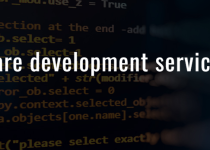The Impact of AI on Modern Recruitment

Artificial intelligence (AI) is significantly transforming the recruitment industry, introducing efficiency, precision, and fairness throughout the hiring process. This article examines how AI is reshaping recruitment, highlighting its primary benefits, operational mechanisms, and the emerging trends that will influence the future of talent acquisition.
How AI Recruitment Software Functions
AI recruitment software utilizes advanced algorithms and machine learning to optimize various stages of the hiring process. Here’s a breakdown of how it works:
- Candidate Sourcing: AI scours job boards, social media, and other digital platforms to find candidates whose profiles align with the job requirements.
- Automated Resume Screening: AI quickly filters through resumes, discarding those that don’t meet the qualifications and spotlighting the most promising candidates.
- Streamlined Interview Scheduling: AI automates the scheduling of interviews, minimizing administrative tasks and ensuring a smooth experience for both recruiters and candidates.
- Enhanced Candidate Communication: AI-driven chatbots interact with candidates, providing timely updates and answering inquiries, which greatly enhances the overall candidate experience.
- Predictive Analytics: AI assesses candidate data to predict their potential job performance and cultural fit, aiding recruiters in making better hiring decisions.
Key Advantages of AI in Recruitment
1. Accelerated Hiring
AI recruiting software accelerates the recruitment process by automating time-consuming tasks such as resume screening and interview scheduling, enabling companies to fill positions faster.
2. Better Candidate Matching
AI’s ability to analyze vast amounts of data allows it to match candidates to roles that align perfectly with their skills, experience, and values, leading to more successful hires and increased job satisfaction.
3. Enhanced Candidate Experience
AI-powered chatbots keep candidates engaged and informed throughout the hiring process, resulting in a more positive and streamlined experience.
4. Reduction of Hiring Bias
By focusing on objective data like qualifications and experience, AI reduces unconscious bias in the hiring process, promoting greater fairness and diversity in recruitment.
5. Data-Driven Insights
AI provides recruiters with data-driven insights, allowing them to refine their recruitment strategies and make more informed decisions, ultimately improving the quality of hires.
How AI Operates in the Recruitment Process
1. Data Collection and Analysis
AI gathers and processes data from various sources, including resumes, online profiles, and assessments, to create detailed candidate profiles.
2. Training of AI Models
AI models are trained using historical hiring data, enabling them to identify patterns and predict a candidate’s potential for success in a given role.
3. Automated Screening and Prioritization
AI automates the screening process, ranking candidates based on predefined criteria to ensure that the most qualified individuals are highlighted for further consideration.
4. Continuous Candidate Interaction
AI-powered chatbots maintain engagement with candidates by offering real-time communication, answering questions, and providing updates throughout the recruitment process.
5. Predictive Hiring Analytics
AI uses predictive analytics to evaluate a candidate’s likelihood of success within the organization, offering insights that support strategic hiring decisions.
Emerging AI Trends in Recruitment
As AI technology continues to evolve, its impact on recruitment will deepen. Key trends to watch include:
1. Personalized Candidate Experiences
AI will increasingly enable personalized recruitment experiences, tailoring job recommendations and interactions to individual candidate preferences and needs.
2. Integration with Comprehensive HR Systems
AI recruitment tools will become more integrated with other HR systems, such as onboarding and performance management, creating a more cohesive and efficient talent management process.
3. Enhanced Predictive Capabilities
As AI algorithms grow more sophisticated, they will offer even more accurate predictions about candidate success, helping companies better identify and retain top talent.
4. Focus on Ethical AI
With AI’s growing role in recruitment, there will be an increased emphasis on ethical AI practices. Companies must ensure that AI-driven decisions are transparent, fair, and responsible, maintaining trust in the hiring process.
Conclusion
AI is transforming recruitment by introducing tools that increase speed, accuracy, and fairness in hiring. Through the automation of routine tasks, reduction of bias, and provision of data-driven insights, AI is making recruitment more efficient, precise, and inclusive.
As AI technology continues to advance, its role in recruitment will expand, providing companies with a competitive advantage in attracting and retaining top talent. By adopting AI in recruitment, organizations can streamline their hiring processes and lay the foundation for long-term success by effectively identifying and nurturing the best candidates.
--------------------------------
Guestbeat.com Notice!
Audience discretion is needed, Read TOS.
Submit Guest Post / Read Latest / Category List
App & Rate-Us / Subscribe Daily Newsletter (FREE)
Related Posts

Safety and Style Combined: A Parent’s Guide to Kids Cars

Software-Development-Company

